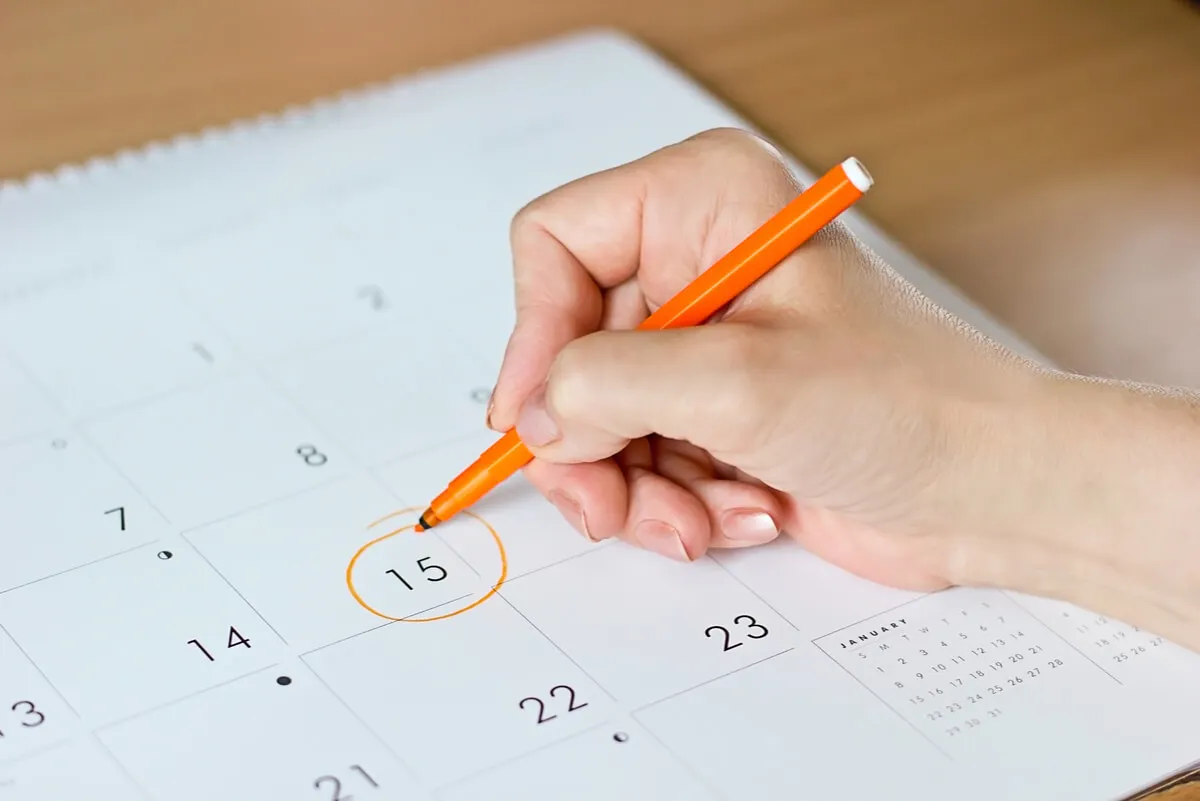6 Tips to Avoid Falling Asleep While Studying


Reviewed and approved by the doctor Leonardo Biolatto
Are you trying to avoid falling sleep while studying? Are you trying to concentrate but feeling tired? Sleepless nights, long working hours, and complex or boring subjects are often the main triggers for this problem. Fortunately, there are some tips to avoid falling asleep while studying.
Whether you have to prepare for a presentation or study for an exam, it is essential to be awake and aware of the information you are reviewing. Otherwise, it hinders the memorization and learning process, which will lead to predicament situations. To learn more, read on.
Tips to avoid falling asleep while studying
Sometimes the feeling of sleepiness becomes an obstacle to studying. Either because of difficulties in sleeping the night before, or because the subject of study is unattractive, that tiredness prevents the knowledge from being properly internalized.
Now, perhaps putting the books aside and resting is the most effective option to deal with this. But if that’s not possible, there are some strategies to help you stay awake. Below, we detail them.
1. Take care of your sleeping hours
The first tip to avoid sleep while studying is obvious, but necessary to remember… take care of your sleeping hours! In addition to getting enough sleep at night in terms of quantity and quality, you might consider taking a nap.
In addition to keeping your moods stable, sleep is critical for maintaining attention, motivation and memory. Hence, learning.
A study published in the journal Sleep indicates that taking a 30-minute nap after studying improves the learning process and makes you retain the information, even a week after reading it. Try sleeping, but after studying and only for half an hour.
2. Watch your posture and move around from time to time

If you are tired, you will most likely consider studying in bed. However, this is not recommended. When you lie down, your body interprets that it is going to rest and activates some functions regulated by the parasympathetic nervous system, such as digestion. Sitting upright, on the other hand, activates alertness.
In fact, studies suggest that position is crucial in terms of performance and working memory. Still, if you get tired of sitting all the time, then try studying while standing or taking a break to move around.
A study published in Frontiers in Public Health reports that 10 minutes of walking outdoors improves student performance . In particular, this physical activity was found to act positively on working memory and mathematical problem-solving activities.
Get out of your chair and move around a bit; walk, jump or dance. In addition to chasing away sleep, you’ll be stimulating your memory and other skills.
3. Hydration and nutrition to not fall asleep
One study points out that, even at mild to moderate levels, dehydration can affect short-term memory, as well as concentration, mathematical ability, perception and alertness. Therefore, you should hydrate regularly.
It is also important to follow a healthy eating plan. Avoid sweet snacks and junk food. The reason? Although you may initially feel a boost of energy, your blood sugar can crash and make you feel sluggish and drowsy.
Instead, follow a diet that includes small but continuous portions containing a protein, a complex carbohydrate and a healthy fat. Some recommended foods include the following:
- Eggs
- Turkey meat
- Fish
- Seafood
- Lentils
- Cereals
- Nuts
- Dairy products
4. Lighting and environment is key
To avoid sleepiness while studying you should pay attention to the lighting of spaces. The body responds to environmental signals such as light and darkness. Research indicates that exposure to light activates a protein in the body that promotes wakefulness, i.e., alertness.
Although there are cases in which sleep can win, even in a lighted room, try to study in such an environment. Better if there is natural light and fresh air.
The place of study is also decisive. The bedroom is not recommended, as it is associated with sleep. But if there is no other option, try to have a desk to study sitting down, not lying down.
You can also have the perfect excuse to go out to study; locate a nearby library, a park, or a cafeteria. Remember that this place should be well-lit.
5. Create study strategies not to fall asleep

Creating study strategies makes learning more dynamic. Do not settle for reading as a traditional learning mechanism, try to use reference cards or make concept maps to help you divide the information and remember it easily. Other options are the following:
- Read out loud.
- Draw on a board.
- Solve problems with practical exercises.
Try studying together with your classmates. In addition to practicing what you have learned, you will be able to offer and receive new perspectives and interpretations on the topic of study.
If you are in doubt about something, the other person can get you out of doubt or error. The chances of the dream affecting the group are very low. On the contrary, it will keep the members wide awake.
6. Remember your goal
Never lose sight of your goal! Learn something new, pass an exam or achieve an important quota. Keeping your mind focused on what you want is one of the greatest motivators.
Follow these tips to avoid falling asleep while studying!
Following these strategies is very simple. They do not involve sacrifices and, on the contrary, they become reward mechanisms for learning. So implement in your study routines one or several tips -as many as you need- to prevent sleepiness from taking over and keeping you from being the best you can be.
All cited sources were thoroughly reviewed by our team to ensure their quality, reliability, currency, and validity. The bibliography of this article was considered reliable and of academic or scientific accuracy.
- Popkin, B. M., D’Anci, K. E., & Rosenberg, I. H. (2010). Water, hydration, and health. Nutrition reviews, 68(8), 439–458. https://doi.org/10.1111/j.1753-4887.2010.00304.x.
- Mualem, R., Leisman, G., Zbedat, Y., Ganem, S., Mualem, O., Amaria, M., Kozle, A., Khayat-Moughrabi, S., & Ornai, A. (2018). The Effect of Movement on Cognitive Performance. Frontiers in public health, 6, 100. https://doi.org/10.3389/fpubh.2018.00100.
- Muehlhan, M., Marxen, M., Landsiedel, J., Malberg, H., & Zaunseder, S. (2014). The effect of body posture on cognitive performance: a question of sleep quality. Frontiers in human neuroscience, 8, 171. https://doi.org/10.3389/fnhum.2014.00171.
- James N Cousins, Kian F Wong, Bindiya L Raghunath, Carol Look, Michael W L Chee, The long-term memory benefits of a daytime nap compared with cramming, Sleep, Volume 42, Issue 1, January 2019, zsy207, https://doi.org/10.1093/sleep/zsy207.
- Chen, S., Reichert, S., Singh, C., Oikonomou, G., Rihel, J., Prober, D. Light-Dependent Regulation of Sleep and Wake States by Prokineticin 2 in Zebrafish. Neuron. Vol. 95, 153–168, July 5, 2017.
- Valenzuela, A. El café y sus efectos en la salud cardiovascular y en la salud materna. Rev Chil Nutr. Vol. 37, N. 4, 2010.
This text is provided for informational purposes only and does not replace consultation with a professional. If in doubt, consult your specialist.








